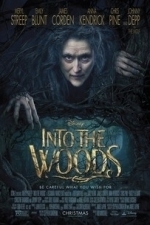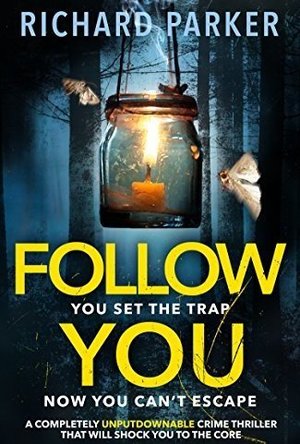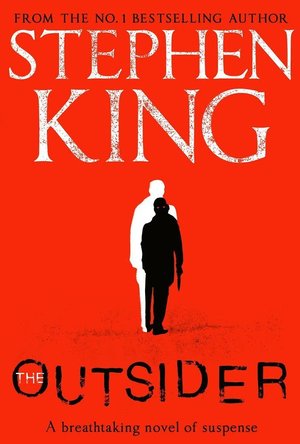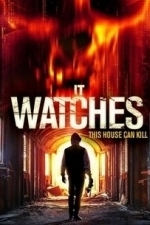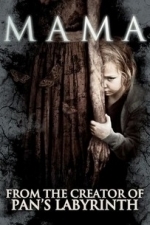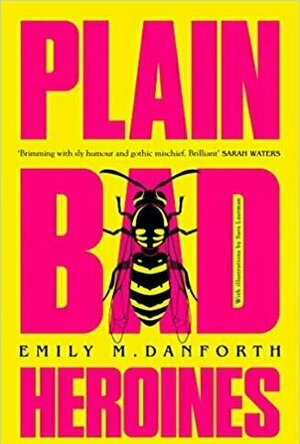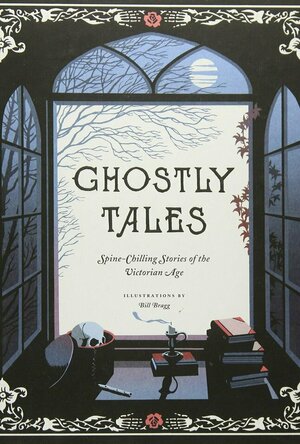Search
Movie Metropolis (309 KP) rated Into the Woods (2014) in Movies
Jun 11, 2019
A charming adaptation
Wolves, witches and giants all appear in the film adaptation of Stephen Sondheim’s popular musical which takes all the best bits of our favourite fairytales and mashes them together in one engaging, song-filled rollercoaster.
However, musical movie adaptations are notoriously difficult to get right, from casting restraints to the inclusion of all the songs, transferring them to the silver screen is not something to be entered into lightly. So does director Rob Marhsall’s effort elevate itself above its peers?
Into the Woods has numerous plot threads that all end up coming together in one way or another, but the main storyline follows a baker (James Corden) and his wife, played gloriously by Emily Blunt, as they come to realise they cannot have a child.
Alas, a witch – who just so happens to live next door – has a way to provide them with what they want as long as they get a few items for her in the meantime.
An all-star cast including the likes of Chris Pine, Anna Kendrick, Christine Baranski, Lucy Punch, Johnny Depp and of course Meryl Streep all give their all in a film that is brimming with tantalising cinematography and stunning songs.
meryl-streep-into-the-woodsGenerally speaking, the female cast fares better in the singing portions of the film, although Chris Pine and Billy Magnussen had the audience in intentional fits of laughter in one particular sequence as two handsome Princes.
Unfortunately, Into the Wood’s greatest asset, its cast, is also its biggest undoing. Having so many story threads means that there isn’t any emotional attachment to the characters – despite the film’s numerous attempts to tug at the heartstrings.
Despite a deeply heartfelt performance of ‘Stay with Me’ from Meryl Streep, the film just steadily rolls itself from admittedly thrilling set piece to set piece without getting bogged down in nitty gritty character development.
Thankfully, the glorious cinematography that featured in the trailer continues throughout. An enclosed feeling makes you feel like you’re actually watching a stage show rather than a film, albeit one with a much higher budget, and this is one of its most captivating features.
Director Rob Marshall has managed to keep the pantomime feel despite the fact the audience is watching in a cinema – the locations are never overdone and everything feels nicely claustrophobic, adding to the eerie atmosphere.
However, the final act is unnecessarily long and its foray into deeper territory means the magic and sparkle is well and truly lost. This is a real shame as there are numerous moments where the film could end on a high, rather than delving into a murky and at times, incomprehensible final third.
Overall, Into the Woods is a charming adaptation of the popular musical and despite its slightly overlong running time and a disappointing final act, it manages to stay on course for a perfectly adequate, if underwhelming finale.
The entire cast have a ball with their characters with Meryl Streep and Emily Blunt being particular highlights throughout.
Parents beware however, its PG certification may be slightly too lenient for smaller children, who will no doubt be intrigued by the premise of combining our most-loved fairytales.
https://moviemetropolis.net/2015/01/17/a-charming-adaptation-into-the-woods-review/
However, musical movie adaptations are notoriously difficult to get right, from casting restraints to the inclusion of all the songs, transferring them to the silver screen is not something to be entered into lightly. So does director Rob Marhsall’s effort elevate itself above its peers?
Into the Woods has numerous plot threads that all end up coming together in one way or another, but the main storyline follows a baker (James Corden) and his wife, played gloriously by Emily Blunt, as they come to realise they cannot have a child.
Alas, a witch – who just so happens to live next door – has a way to provide them with what they want as long as they get a few items for her in the meantime.
An all-star cast including the likes of Chris Pine, Anna Kendrick, Christine Baranski, Lucy Punch, Johnny Depp and of course Meryl Streep all give their all in a film that is brimming with tantalising cinematography and stunning songs.
meryl-streep-into-the-woodsGenerally speaking, the female cast fares better in the singing portions of the film, although Chris Pine and Billy Magnussen had the audience in intentional fits of laughter in one particular sequence as two handsome Princes.
Unfortunately, Into the Wood’s greatest asset, its cast, is also its biggest undoing. Having so many story threads means that there isn’t any emotional attachment to the characters – despite the film’s numerous attempts to tug at the heartstrings.
Despite a deeply heartfelt performance of ‘Stay with Me’ from Meryl Streep, the film just steadily rolls itself from admittedly thrilling set piece to set piece without getting bogged down in nitty gritty character development.
Thankfully, the glorious cinematography that featured in the trailer continues throughout. An enclosed feeling makes you feel like you’re actually watching a stage show rather than a film, albeit one with a much higher budget, and this is one of its most captivating features.
Director Rob Marshall has managed to keep the pantomime feel despite the fact the audience is watching in a cinema – the locations are never overdone and everything feels nicely claustrophobic, adding to the eerie atmosphere.
However, the final act is unnecessarily long and its foray into deeper territory means the magic and sparkle is well and truly lost. This is a real shame as there are numerous moments where the film could end on a high, rather than delving into a murky and at times, incomprehensible final third.
Overall, Into the Woods is a charming adaptation of the popular musical and despite its slightly overlong running time and a disappointing final act, it manages to stay on course for a perfectly adequate, if underwhelming finale.
The entire cast have a ball with their characters with Meryl Streep and Emily Blunt being particular highlights throughout.
Parents beware however, its PG certification may be slightly too lenient for smaller children, who will no doubt be intrigued by the premise of combining our most-loved fairytales.
https://moviemetropolis.net/2015/01/17/a-charming-adaptation-into-the-woods-review/
Zuky the BookBum (15 KP) rated Follow You in Books
Mar 15, 2018
Initially, I really hated the title of this book, it sounds super cheesy and weird, but after finding out it relates to the Twitter Killer plot, I actually thought it was quite cool. The plotline here is that there was Twitter thread called '#BeMyKiller' where you could advertise yourself up to be killed (in a pranky way) but then a few people who responded to this thread were murdered. I thought this was a really unique motivation for the crimes in this and so my hatred for the title dissipated.
This is a fast paced book, with never a dull moment! If you're one of those people who pushes themselves through "just one more chapter", this book is going to stop you from sleeping... There are 130 chapters in this book, with some of them being just a page long!
I liked the plot for this, that they were making a film about the murders, that then turned into more murders. The setting was in the dark and dreary murder place of Meredith, "Fun Central" and because it was an old kids play area, with ball bits and go-kart tracks, it had an eerie feel to it that worked well alongside the gruesome murders. And yes, they were gruesome murders.
Writing was well done. It's not a challenging book to read, there's no amazing descriptive passages or hard-hitting themes, it's just an easy thriller read. One problem I did have with the writing is something so stupid and very specific that it almost seems pointless in saying it, but it got on my nerves enough times that I have to mention it. "So why did you use the #BeMyKiller hashtag?" - how do you read that sentence? I read it as "hashtag Be My Killer hashtag"... yes that's all that's annoyed me, the double use of the hashtag... don't use a # if you're then going to write out hashtag!!!
Our main character in this novel is Hazel, and while she's creating this film to get justice for Meredith's killer, I didn't particularly like her. The blurb makes it sound like Hazel is doing her documentary to get justice for Meredith, but to me, it felt like she was making the film to save her company from going under. She was too deceptive with all the characters about her reasoning behind creating this new film, that her passion to catch the killer felt fake. As for Meredith being a "childhood friend", I'd say that wasn't very realistic, the book makes it feel like they were more acquaintances than anything, and that Hazel just sort of pitied Meredith. It's never good when you don't like the main character, but I was reasonably happy still going along with this novel. Hazel was dislikable but she was tolerable.
I had my suspicions of who the killer might be, which turned out to be wrong, but I think I would have preferred my scenario to play out because the real reveal was pretty dramatic and out there. Although the last 40% of the book was super tense and horror-movie-like it got a little OTT in my opinion.
Overall this is a great thriller if you're looking for a book with non-stop action, but it's not particularly clever and it's very dark, so if you're not into that kinda thing, you won't enjoy this one. It's clear that Parker has a talent for writing and I will definitely look out for more books of his, but this, for me, was a very mediocre thriller novel.
This is a fast paced book, with never a dull moment! If you're one of those people who pushes themselves through "just one more chapter", this book is going to stop you from sleeping... There are 130 chapters in this book, with some of them being just a page long!
I liked the plot for this, that they were making a film about the murders, that then turned into more murders. The setting was in the dark and dreary murder place of Meredith, "Fun Central" and because it was an old kids play area, with ball bits and go-kart tracks, it had an eerie feel to it that worked well alongside the gruesome murders. And yes, they were gruesome murders.
Writing was well done. It's not a challenging book to read, there's no amazing descriptive passages or hard-hitting themes, it's just an easy thriller read. One problem I did have with the writing is something so stupid and very specific that it almost seems pointless in saying it, but it got on my nerves enough times that I have to mention it. "So why did you use the #BeMyKiller hashtag?" - how do you read that sentence? I read it as "hashtag Be My Killer hashtag"... yes that's all that's annoyed me, the double use of the hashtag... don't use a # if you're then going to write out hashtag!!!
Our main character in this novel is Hazel, and while she's creating this film to get justice for Meredith's killer, I didn't particularly like her. The blurb makes it sound like Hazel is doing her documentary to get justice for Meredith, but to me, it felt like she was making the film to save her company from going under. She was too deceptive with all the characters about her reasoning behind creating this new film, that her passion to catch the killer felt fake. As for Meredith being a "childhood friend", I'd say that wasn't very realistic, the book makes it feel like they were more acquaintances than anything, and that Hazel just sort of pitied Meredith. It's never good when you don't like the main character, but I was reasonably happy still going along with this novel. Hazel was dislikable but she was tolerable.
I had my suspicions of who the killer might be, which turned out to be wrong, but I think I would have preferred my scenario to play out because the real reveal was pretty dramatic and out there. Although the last 40% of the book was super tense and horror-movie-like it got a little OTT in my opinion.
Overall this is a great thriller if you're looking for a book with non-stop action, but it's not particularly clever and it's very dark, so if you're not into that kinda thing, you won't enjoy this one. It's clear that Parker has a talent for writing and I will definitely look out for more books of his, but this, for me, was a very mediocre thriller novel.
TheDefunctDiva (304 KP) rated The Outsider in Books
Oct 7, 2018
From the Inside, Out
Contains spoilers, click to show
This book opens like an episode of “Law and Order: SVU” not suitable for primetime.
A gruesome crime, involving a child (and complete with elements of cannibalism) is committed. The alleged murderer, damned by seemingly undeniable forensic proof, is then very publicly apprehended. And then the twists and turns begin. Though eyewitnesses also put beloved schoolteacher Terry Maitland at the scene of the horrific crime, the accused was actually at a conference in another city, where he was seen on camera no less. Then comes a series of events that threatens not only the man’s quality of life but his very existence.
The novel then expands into a whodunnit with a notably creepy character, a morphing being known as the Outsider. As the true perpetrator of this and other crimes against children and their families, he is at once very human and very otherworldly.
This novel is set in the southwest, which is an unusual departure for Stephen King. Therefore, the descriptions of places were perhaps a bit less detailed and authentic than I would have liked. But having lived in San Antonio, I can say he did a pretty good job and the scenery offered certainly didn’t detract from the story.
In some respects, the monster in the Outsider echoed back to Kafka’s The Metamorphosis. The descriptions of the constantly morphing Outsider character had an eerie element. In the end, the flesh of the outsider consisted of nightmarish worms. And there was a particularly nasty substance he used to morph into his intended victims, some unidentifiable black substance which seems the stuff nightmares are made of. Appropriate, since he went around “eating sorrow” like some unhinged emo kid. Leaving entire families in his wake with his vile need to satiate himself. In his default shape, he resembled a man with “straws for eyes” which is haunting, but not nearly as terrifying as some of King’s other humanoid villains.
This book had several scenes that are now ingrained in my memory. The scene that stole the show for me was when bereaved Arlene Peterson, the victim’s mother, pours funeral leftovers on her head before ultimately succumbing to a heart attack. But the arraignment scene was definitely one that offered more action and intrigue than previously seen in the book. Chaos is one of the things King does best, and this section was remarkable. The book up to this point dragged a little, but the arraignment reigns as a pivotal point that brings many horrors sharply into focus.
I especially enjoyed the murder mystery elements of the book, as I am a sucker for a good detective story. Holly, an investigator who worked with lead detective Ralph Anderson, was my favorite character. Throughout the novel, she is depicted as smart, shrewd, and socially inept. She is also a tad obsessive-compulsive, which I related to on a personal level.
Throughout, the book seems to focus on the dual nature of man, especially in the concluding scene. It seems every man in his lifetime, by choice or fate, wears more than one face. The Outsider was a quality thriller and mystery. It is at once mysterious and devastating, and a testament to the tenacity of the human spirit.
A gruesome crime, involving a child (and complete with elements of cannibalism) is committed. The alleged murderer, damned by seemingly undeniable forensic proof, is then very publicly apprehended. And then the twists and turns begin. Though eyewitnesses also put beloved schoolteacher Terry Maitland at the scene of the horrific crime, the accused was actually at a conference in another city, where he was seen on camera no less. Then comes a series of events that threatens not only the man’s quality of life but his very existence.
The novel then expands into a whodunnit with a notably creepy character, a morphing being known as the Outsider. As the true perpetrator of this and other crimes against children and their families, he is at once very human and very otherworldly.
This novel is set in the southwest, which is an unusual departure for Stephen King. Therefore, the descriptions of places were perhaps a bit less detailed and authentic than I would have liked. But having lived in San Antonio, I can say he did a pretty good job and the scenery offered certainly didn’t detract from the story.
In some respects, the monster in the Outsider echoed back to Kafka’s The Metamorphosis. The descriptions of the constantly morphing Outsider character had an eerie element. In the end, the flesh of the outsider consisted of nightmarish worms. And there was a particularly nasty substance he used to morph into his intended victims, some unidentifiable black substance which seems the stuff nightmares are made of. Appropriate, since he went around “eating sorrow” like some unhinged emo kid. Leaving entire families in his wake with his vile need to satiate himself. In his default shape, he resembled a man with “straws for eyes” which is haunting, but not nearly as terrifying as some of King’s other humanoid villains.
This book had several scenes that are now ingrained in my memory. The scene that stole the show for me was when bereaved Arlene Peterson, the victim’s mother, pours funeral leftovers on her head before ultimately succumbing to a heart attack. But the arraignment scene was definitely one that offered more action and intrigue than previously seen in the book. Chaos is one of the things King does best, and this section was remarkable. The book up to this point dragged a little, but the arraignment reigns as a pivotal point that brings many horrors sharply into focus.
I especially enjoyed the murder mystery elements of the book, as I am a sucker for a good detective story. Holly, an investigator who worked with lead detective Ralph Anderson, was my favorite character. Throughout the novel, she is depicted as smart, shrewd, and socially inept. She is also a tad obsessive-compulsive, which I related to on a personal level.
Throughout, the book seems to focus on the dual nature of man, especially in the concluding scene. It seems every man in his lifetime, by choice or fate, wears more than one face. The Outsider was a quality thriller and mystery. It is at once mysterious and devastating, and a testament to the tenacity of the human spirit.
365Flicks (235 KP) rated It Watches (2016) in Movies
Nov 20, 2019
Well Holy Shit… I just got done watching this Independent Thriller/Horror movie It Watches which is headed your way on VOD shortly, and I have got to say it has been a while since a movie completely pulled the rug out from under me. I mean damn, I am a Cinema Goer/Movie Watcher that likes to think he is always one step ahead of the movie and for the most part I am but I have to say this one outsmarted me. This makes me very very happy.
To Director Dave Parker (The Hills Run Red) I tip my cap. First of all because I am getting tired of all this camcorder crap. It feels like every Horror movie these days has got to have that found footage/CCTV feel to it. However this it-watches-19movie actually felt fresh in its approach and didn’t over play what it was doing, the jump scares were minimal and the camcorder style only served to ratchet up the tension. So lets just get into this…
After having suffered an accident Andre (Ivan Djurovic – Zoombies) is given the chance to spend some time relaxing away from it all the while also helping out his good friend Robert (Rick Irwin – 30 Minutes or Less) by House-sitting a fantastic place in the Hollywood hills. Andre proceeds to make a home video on his camcorder and gives us a tour of this awesome but pretty eerie home. This portion of the movie is all setting up the tone of what we have to come and you find yourself scanning every section of the screen for something to happen (Sometimes it does, sometimes not). As we approach night-fall Andre is joined by a lady friend Rachael (Sanny van Heteren – Hellraiser : Revelations) and it is from here things start to take a bit of a turn for the worse as we realize Andre and Rachael may not be the only people in the house. Add a creepy unknown element in Guy (James Duval – Donnie Darko) and we have all the makings of something special. In a completely unexpected, Surprising and a you will not see it coming movie.
I cant say much more about this flick because anymore than what I just told you and we are in major spoiler territory. What I will say though is that Director Dave Parker and Actor/Writer Ivan Djurovic have really come up with something special here and im so glad I gave it my time. Ivan absolutely shines here in what is essentially a movie powerhouse performance, making what at first seemed like strange choices in his acting but when you get to the end you can see exactly what the character is about (Mission Accomplished). The script is clever as hell and while I honestly thought they were telling me everything I needed to know from the get go, they still managed to make me feel like a bit of an idiot.
Add to all of this James Duval turns up so my Donnie Darko Geek Boner was severely super charged by this point.
So yeah I am on a huge Indie kick right now and movies like this are exactly why I love watching them, what these guys out there are doing with limited budget and unimaginable passion for there craft is amazing which is why we should all give them the time they deserve. Give this movie a go and let me know what you thought.
To Director Dave Parker (The Hills Run Red) I tip my cap. First of all because I am getting tired of all this camcorder crap. It feels like every Horror movie these days has got to have that found footage/CCTV feel to it. However this it-watches-19movie actually felt fresh in its approach and didn’t over play what it was doing, the jump scares were minimal and the camcorder style only served to ratchet up the tension. So lets just get into this…
After having suffered an accident Andre (Ivan Djurovic – Zoombies) is given the chance to spend some time relaxing away from it all the while also helping out his good friend Robert (Rick Irwin – 30 Minutes or Less) by House-sitting a fantastic place in the Hollywood hills. Andre proceeds to make a home video on his camcorder and gives us a tour of this awesome but pretty eerie home. This portion of the movie is all setting up the tone of what we have to come and you find yourself scanning every section of the screen for something to happen (Sometimes it does, sometimes not). As we approach night-fall Andre is joined by a lady friend Rachael (Sanny van Heteren – Hellraiser : Revelations) and it is from here things start to take a bit of a turn for the worse as we realize Andre and Rachael may not be the only people in the house. Add a creepy unknown element in Guy (James Duval – Donnie Darko) and we have all the makings of something special. In a completely unexpected, Surprising and a you will not see it coming movie.
I cant say much more about this flick because anymore than what I just told you and we are in major spoiler territory. What I will say though is that Director Dave Parker and Actor/Writer Ivan Djurovic have really come up with something special here and im so glad I gave it my time. Ivan absolutely shines here in what is essentially a movie powerhouse performance, making what at first seemed like strange choices in his acting but when you get to the end you can see exactly what the character is about (Mission Accomplished). The script is clever as hell and while I honestly thought they were telling me everything I needed to know from the get go, they still managed to make me feel like a bit of an idiot.
Add to all of this James Duval turns up so my Donnie Darko Geek Boner was severely super charged by this point.
So yeah I am on a huge Indie kick right now and movies like this are exactly why I love watching them, what these guys out there are doing with limited budget and unimaginable passion for there craft is amazing which is why we should all give them the time they deserve. Give this movie a go and let me know what you thought.
JT (287 KP) rated Mama (2013) in Movies
Mar 10, 2020
When a film is presented by a well-known director it initially has a certain weight to it that will place it above the shoulders of others. In the case of horror/thriller Mama it has the backing of Spanish director Guillermo del Toro which is a certain plus point for any one who is a fan.
However, any big name attachment is probably there to push the marketing of the film, sadly this one doesn’t quite do itself much justice and falls some way short of achieving any greatness.
It’s a film of two halves, which as the second and third acts take shape becomes more and more ridiculous.
The film is brought to the big screen by director by Andrés Muschietti who also helmed the short three minute piece. It follows the story of two girls Lily and Victoria who are taken away by their father Jeffrey after he goes a bit doolally and offs his co-workers and wife.
When the car they are travelling in crashes they take shelter in a house deep in the forest, riddled with guilt Jeffrey then decides to enter into murder suicide, but something supernatural stops him and the girls are left to fend for themselves.
Move ahead five years and Jeffrey’s brother Lucas continues his search for the girls hiring a couple of hicks to trail the forest looking for the derelict cabin. When they are finally found the girls are practically feral and need psychiatric supervision as they are welcomed back into society.
Lucas and his grunge girlfriend Annabel are given custody as well as a nice new house for them to live in, all under the watchful eye of Dr. Dreyfuss. Once inside the house its clear to see that the girls have brought something back with them, something that doesn’t want to let them go.
Mama starts well enough, with a frenetic opening that glimpses the supernatural entity through blurred vision it moves from eerie strength to strength building tension and then unleashing it in small doses not giving the audience long enough to draw breath.
Of course it sticks quite closely to now tried and tested horror clichés, with things lurking in the shadows, children talking to imaginary nothingness and the so old “what’s in the closet” routine?
Then the director, whether bored with just giving us tit bits of the mother like antagonist, decides to reveal ‘it’ in all its glory. It then moves from scare mongering horror to poorly constructed ghost story in the space of a few minutes.
The acting is nothing to write home about, Jessica Chastain while so dominant in Zero Dark Thirty is flat and a little off the mark here, why the need for the grunge look is beyond me. Maybe it was in keeping with the Gothic back story?
The young girls do well, sweet and innocent yet dependable when needed, the rest of the cast pretty much fall by the wayside. The ending was for me beyond ridiculous and undid most if not all of the good work the start gave us, although saying that it was pretty much on the decline when Mama herself becomes much more of a central character.
It’s not as main stream a horror as you would expect, but the protagonist shadows the central figure that graced the god awful Darkness Falls and that is one supernatural entity well worth staying away from.
However, any big name attachment is probably there to push the marketing of the film, sadly this one doesn’t quite do itself much justice and falls some way short of achieving any greatness.
It’s a film of two halves, which as the second and third acts take shape becomes more and more ridiculous.
The film is brought to the big screen by director by Andrés Muschietti who also helmed the short three minute piece. It follows the story of two girls Lily and Victoria who are taken away by their father Jeffrey after he goes a bit doolally and offs his co-workers and wife.
When the car they are travelling in crashes they take shelter in a house deep in the forest, riddled with guilt Jeffrey then decides to enter into murder suicide, but something supernatural stops him and the girls are left to fend for themselves.
Move ahead five years and Jeffrey’s brother Lucas continues his search for the girls hiring a couple of hicks to trail the forest looking for the derelict cabin. When they are finally found the girls are practically feral and need psychiatric supervision as they are welcomed back into society.
Lucas and his grunge girlfriend Annabel are given custody as well as a nice new house for them to live in, all under the watchful eye of Dr. Dreyfuss. Once inside the house its clear to see that the girls have brought something back with them, something that doesn’t want to let them go.
Mama starts well enough, with a frenetic opening that glimpses the supernatural entity through blurred vision it moves from eerie strength to strength building tension and then unleashing it in small doses not giving the audience long enough to draw breath.
Of course it sticks quite closely to now tried and tested horror clichés, with things lurking in the shadows, children talking to imaginary nothingness and the so old “what’s in the closet” routine?
Then the director, whether bored with just giving us tit bits of the mother like antagonist, decides to reveal ‘it’ in all its glory. It then moves from scare mongering horror to poorly constructed ghost story in the space of a few minutes.
The acting is nothing to write home about, Jessica Chastain while so dominant in Zero Dark Thirty is flat and a little off the mark here, why the need for the grunge look is beyond me. Maybe it was in keeping with the Gothic back story?
The young girls do well, sweet and innocent yet dependable when needed, the rest of the cast pretty much fall by the wayside. The ending was for me beyond ridiculous and undid most if not all of the good work the start gave us, although saying that it was pretty much on the decline when Mama herself becomes much more of a central character.
It’s not as main stream a horror as you would expect, but the protagonist shadows the central figure that graced the god awful Darkness Falls and that is one supernatural entity well worth staying away from.
Gareth von Kallenbach (980 KP) rated As Above So Below (2014) in Movies
Aug 6, 2019
The film “As above so below” is part horror, part treasure adventure, and
all shaky cam. This found-footage film could also be more aptly titled as
“Lara Croft goes to hell.” The story centers around an excitable young
adventurer with a British accent named Scarlett on a search for the
mythological Philosopher’s Stone. A self-professed scholar of alchemy, she
hopes proving that the stone exists will fulfill her father’s legacy and
prove to the world that he wasn’t crazy. This search leads her and her
partners through the secret areas of the haunted catacombs of Pairs, France
into what could be hell itself. The movie starts with her traveling to Iran
for clues on the location of the Philosopher’s Stone.
The action opens without introductions which I enjoyed, as it gets right
into the action and sets the a good pace for the rest of the film. After
retrieving clues to the location of the stone and narrowly avoiding
security and a cave-in in Iran, our heroine sets off to Paris, France to
gather the rest of the crew for her adventure (the rest of our films
characters). These characters include her old friend Benji, a translator, a
group of French miscreants: Papillion (the leader), Zed and Souxie (the
Banshee, no kidding) all of whom are experts on the secret underground
catacombs. Her loyal documentarian George rounds out the crew who has
followed her around since the film’s opening shot.
Up until this point, the horror element of this film is non-existent. Once
the crew journey into the secret catacombs is when things begin to get
eerie. Plot and circumstance is good and all, but it’s a horror movie, is
it scary? Well, I wasn’t scared at all, neither was my wife whom I saw the
movie with. I’d call it more of a psychological thriller, a slight one at
that. Lots of supernatural happenings occur in the caverns akin to what
you’d find in a haunted house movie. Things like phone’s ringing
inexplicably in an area devoid of electricity and hundreds of feet below
the ground, spooky ghost like figures chanting occult hymns, and dead
drowned children. There isn’t much gore in this film, the little found is
reserved for the last 3rd of the movie. Some fear and wince inducing
moments are supplied via claustrophobia as the group squeezes themselves
through tight corridors and underwater channels. They did a pretty good job
of getting your heart racing. These scenes were reminiscent of a greater
horror entry “The Descent.” If you’ve seen that film, then you know what to
expect when it comes to the 1st person moments of claustrophobia.
Once in the catacombs what follows is a maze of twists and turns and
strange occurrences as the crew tries to solve the mystery of the hidden
Philosopher’s Stone as one by one the crew members get killed off in their
attempt to escape the demonic maze of underground tunnels. As for the
ending? Well prepare to be underwhelmed. The definitive worst part of the
film is its ending. It is so mundane and handled extremely poorly as to
come to an abrupt and seemingly rushed finish without any sense of
accomplishment or endearment to any of the characters or what they have
been through. Although they don’t all make it out alive (naturally this is
a horror film) those that do give off the impression of a group that has
just passed out of the end of a haunted house maze similar to those at the
upcoming Halloween Horror Nights at Universal Studios.
all shaky cam. This found-footage film could also be more aptly titled as
“Lara Croft goes to hell.” The story centers around an excitable young
adventurer with a British accent named Scarlett on a search for the
mythological Philosopher’s Stone. A self-professed scholar of alchemy, she
hopes proving that the stone exists will fulfill her father’s legacy and
prove to the world that he wasn’t crazy. This search leads her and her
partners through the secret areas of the haunted catacombs of Pairs, France
into what could be hell itself. The movie starts with her traveling to Iran
for clues on the location of the Philosopher’s Stone.
The action opens without introductions which I enjoyed, as it gets right
into the action and sets the a good pace for the rest of the film. After
retrieving clues to the location of the stone and narrowly avoiding
security and a cave-in in Iran, our heroine sets off to Paris, France to
gather the rest of the crew for her adventure (the rest of our films
characters). These characters include her old friend Benji, a translator, a
group of French miscreants: Papillion (the leader), Zed and Souxie (the
Banshee, no kidding) all of whom are experts on the secret underground
catacombs. Her loyal documentarian George rounds out the crew who has
followed her around since the film’s opening shot.
Up until this point, the horror element of this film is non-existent. Once
the crew journey into the secret catacombs is when things begin to get
eerie. Plot and circumstance is good and all, but it’s a horror movie, is
it scary? Well, I wasn’t scared at all, neither was my wife whom I saw the
movie with. I’d call it more of a psychological thriller, a slight one at
that. Lots of supernatural happenings occur in the caverns akin to what
you’d find in a haunted house movie. Things like phone’s ringing
inexplicably in an area devoid of electricity and hundreds of feet below
the ground, spooky ghost like figures chanting occult hymns, and dead
drowned children. There isn’t much gore in this film, the little found is
reserved for the last 3rd of the movie. Some fear and wince inducing
moments are supplied via claustrophobia as the group squeezes themselves
through tight corridors and underwater channels. They did a pretty good job
of getting your heart racing. These scenes were reminiscent of a greater
horror entry “The Descent.” If you’ve seen that film, then you know what to
expect when it comes to the 1st person moments of claustrophobia.
Once in the catacombs what follows is a maze of twists and turns and
strange occurrences as the crew tries to solve the mystery of the hidden
Philosopher’s Stone as one by one the crew members get killed off in their
attempt to escape the demonic maze of underground tunnels. As for the
ending? Well prepare to be underwhelmed. The definitive worst part of the
film is its ending. It is so mundane and handled extremely poorly as to
come to an abrupt and seemingly rushed finish without any sense of
accomplishment or endearment to any of the characters or what they have
been through. Although they don’t all make it out alive (naturally this is
a horror film) those that do give off the impression of a group that has
just passed out of the end of a haunted house maze similar to those at the
upcoming Halloween Horror Nights at Universal Studios.

In An Open Field by Nicholas Krgovich
Album Watch
This record could just as easily be called "In A Sunny South Pasadena Living Room" or "In A...
pop
Kristy H (1252 KP) rated Plain Bad Heroines in Books
Dec 17, 2020
Plain Bad Heroines was one of my most anticipated reads of the year. I am a sucker for a lesbian tale. Add in a Gothic New England boarding school for girls? Sold.
The story centers around two time periods. The first, 1902, at the Brookhants School for Girls, run by Libbie Brookhants. A book by a young writer, Mary MacLane has come out--one that's incredibly scandalous for the times. Two Brookhants girls, Flo and Clara, are obsessed with it and establish The Plain Bad Heroine Society. The two are in love, meeting in secret--until they are attacked by yellow jackets at their hiding spot, a copy of the book found with them. A few years later the school closes, but not until after more scandal and death. Now, our second period, over a hundred years later, where Merritt Emmons, a young writer, publishes a book about Flo and Clara's story. It inspires a horror film starring Harper Harper, a famous lesbian actress. Harper will be playing Flo and B-list actress Audrey Wells, Clara. Filming on-site at the abandoned Brookhants site, the three women converge. But soon, weird things start happening, and the curse of Brookhants seems back to haunt the set--and our three modern-day heroines.
This book is absolutely enthralling at times. I flew through these 619 pages, that's for sure. My notes state "very lesbian," which is, of course, a major plus for me. Believe me, we don't get a lot of books starring ourselves. And you know, where we are killed off by swarms of yellow jackets. I honestly found both storylines compelling. It's hard not to fall a bit in love with Harper Harper, the charismatic celebrity (out!) lesbian. And 1902 isn't just about Clara and Flo, but Libbie Brookhants and her life trying to run a cursed school in the early 1900s. Honestly, the pages really flew by most of the time. Though, there are certainly moments where I felt some of the story could have been cut.
And yes, the narrative style is different, though it really adds to the uniqueness of the book. It's basically told by an omnipresent narrator, talking directly to the reader. There are footnotes, often humorous ones, and the end result is something you don't often find. For the most part, I felt like Danforth pulled it off, too. I do think Libbie was a little more fully developed than Merritt, Harper, and Audrey, but that also may have been because that trio could come across as a bit spoiled at times.
Probably my two biggest issues with this book (regretfully): for a Gothic horror novel, it's not really that scary. There are a few creepy and eerie moments, especially in the beginning, but it never really builds up to that terrifying moment that you're expecting. And, somewhat related, the ending. We read and stick with our various tales for the entire time and then... poof! Everything just fizzles out. I was so bummed. The ending was such a disappointment after all I'd read and kept this from being a full-fledged 4 or 4.5-star read. I couldn't believe it after what we'd been through. It was like even the author was tired.
So, overall, this is an original and fascinating read. I'm certainly still advising you to read it (especially if you're queer or enjoy reading queer fiction). Just be prepared that the ending may not have that big scary moment you're expecting. 3.5 stars.
The story centers around two time periods. The first, 1902, at the Brookhants School for Girls, run by Libbie Brookhants. A book by a young writer, Mary MacLane has come out--one that's incredibly scandalous for the times. Two Brookhants girls, Flo and Clara, are obsessed with it and establish The Plain Bad Heroine Society. The two are in love, meeting in secret--until they are attacked by yellow jackets at their hiding spot, a copy of the book found with them. A few years later the school closes, but not until after more scandal and death. Now, our second period, over a hundred years later, where Merritt Emmons, a young writer, publishes a book about Flo and Clara's story. It inspires a horror film starring Harper Harper, a famous lesbian actress. Harper will be playing Flo and B-list actress Audrey Wells, Clara. Filming on-site at the abandoned Brookhants site, the three women converge. But soon, weird things start happening, and the curse of Brookhants seems back to haunt the set--and our three modern-day heroines.
This book is absolutely enthralling at times. I flew through these 619 pages, that's for sure. My notes state "very lesbian," which is, of course, a major plus for me. Believe me, we don't get a lot of books starring ourselves. And you know, where we are killed off by swarms of yellow jackets. I honestly found both storylines compelling. It's hard not to fall a bit in love with Harper Harper, the charismatic celebrity (out!) lesbian. And 1902 isn't just about Clara and Flo, but Libbie Brookhants and her life trying to run a cursed school in the early 1900s. Honestly, the pages really flew by most of the time. Though, there are certainly moments where I felt some of the story could have been cut.
And yes, the narrative style is different, though it really adds to the uniqueness of the book. It's basically told by an omnipresent narrator, talking directly to the reader. There are footnotes, often humorous ones, and the end result is something you don't often find. For the most part, I felt like Danforth pulled it off, too. I do think Libbie was a little more fully developed than Merritt, Harper, and Audrey, but that also may have been because that trio could come across as a bit spoiled at times.
Probably my two biggest issues with this book (regretfully): for a Gothic horror novel, it's not really that scary. There are a few creepy and eerie moments, especially in the beginning, but it never really builds up to that terrifying moment that you're expecting. And, somewhat related, the ending. We read and stick with our various tales for the entire time and then... poof! Everything just fizzles out. I was so bummed. The ending was such a disappointment after all I'd read and kept this from being a full-fledged 4 or 4.5-star read. I couldn't believe it after what we'd been through. It was like even the author was tired.
So, overall, this is an original and fascinating read. I'm certainly still advising you to read it (especially if you're queer or enjoy reading queer fiction). Just be prepared that the ending may not have that big scary moment you're expecting. 3.5 stars.
Hadley (567 KP) rated Ghostly Tales: Spine-Chilling Stories of the Victorian Age in Books
Jan 20, 2021
Ghost stories (1 more)
Well-written
This collection of tales will transport you to a time when staircases creaked in old manor houses, and a candle could be blown out by a gust of wind, or by a passing ghost. Penned by some of the greatest Victorian novelists and masters of the ghost story genre, these stories come alive alongside exquisitely eerie art in this special illustrated edition.
Since this is a short story collection, I will list the stories with a short synopsis and what I liked and disliked about them.
"Oh, Whistle, and I'll Come to You, My Lad" by M.R. James
A professor decides to go on vacation to work on his golf game while doing a little side work in the town's archaeology, but when he digs up an old whistle and blows into it, he instantly regrets what the whistle brings.
Liked: the buildup to the climax was done masterfully, and the superstition that was used as the premise of the story
Disliked: that the ending is never explained
"The Old Nurse's Story" by Elizabeth Gaskell
When a governess and her ward are taken to a haunted house, they found out that everyone has to pay for their misdeeds.
Liked: the perfect example of what Victorian ghost stories were
Disliked: Nothing; I really enjoyed this one
"The Signalman" by Charles Dickens
A railroad signalman tells a co-worker that he is seeing a ghost that warns him of future accidents, but his co-worker can't tell if he's telling the truth or losing his mind.
Liked: an excellent ghost story; I wish it were an entire novel
Disliked: nothing
"The Body-Snatcher" by Robert Louis Stevenson
When a medical student realizes that the 'donated' bodies are murder victims, he's not so sure he can live with the consequences.
Liked: the ending wasn't predictable
Disliked: at the start, there's a little confusion among who is who
" The Captain of the Pole-Star" by Sir Arthur Conan Doyle
A group of whalers are stuck in the middle of the ocean because of ice burgs, but the ice is the least of their problems when they begin to hear and see supernatural things out on the ice.
Liked: the plot of the story was really good
Disliked: the run-on sentences, some of the accents were hard to decipher, and the ending wasn't explained
"The Phantom Coach" by Amelia B. Edwards
A young man loses his way while on a hunt, but soon finds help with an old man that is convinced the supernatural is real, and when he senses the young man does not, he puts him up against forces from the other side.
Liked: the story never lulled, and the descriptions of the undead were amazing
Disliked: nothing, I thought the story was really good
"The Screaming Skull" by F. Marion Crawford
When the friend of a family finds a skull in the latter's home, he begins to question whether or not the husband murdered his wife.
Liked: I love that this story is actually based off an urban legend
Disliked: the way the author kept breaking away from the story to talk to the audience; it caused the flow of the story to stop
Overall, the Victorian-era authors knew how to write a ghost story. I absolutely loved this collection of short stories. I highly recommend this book to people who love a good 'ol fashioned ghost story (not the gory ones we have today).
Since this is a short story collection, I will list the stories with a short synopsis and what I liked and disliked about them.
"Oh, Whistle, and I'll Come to You, My Lad" by M.R. James
A professor decides to go on vacation to work on his golf game while doing a little side work in the town's archaeology, but when he digs up an old whistle and blows into it, he instantly regrets what the whistle brings.
Liked: the buildup to the climax was done masterfully, and the superstition that was used as the premise of the story
Disliked: that the ending is never explained
"The Old Nurse's Story" by Elizabeth Gaskell
When a governess and her ward are taken to a haunted house, they found out that everyone has to pay for their misdeeds.
Liked: the perfect example of what Victorian ghost stories were
Disliked: Nothing; I really enjoyed this one
"The Signalman" by Charles Dickens
A railroad signalman tells a co-worker that he is seeing a ghost that warns him of future accidents, but his co-worker can't tell if he's telling the truth or losing his mind.
Liked: an excellent ghost story; I wish it were an entire novel
Disliked: nothing
"The Body-Snatcher" by Robert Louis Stevenson
When a medical student realizes that the 'donated' bodies are murder victims, he's not so sure he can live with the consequences.
Liked: the ending wasn't predictable
Disliked: at the start, there's a little confusion among who is who
" The Captain of the Pole-Star" by Sir Arthur Conan Doyle
A group of whalers are stuck in the middle of the ocean because of ice burgs, but the ice is the least of their problems when they begin to hear and see supernatural things out on the ice.
Liked: the plot of the story was really good
Disliked: the run-on sentences, some of the accents were hard to decipher, and the ending wasn't explained
"The Phantom Coach" by Amelia B. Edwards
A young man loses his way while on a hunt, but soon finds help with an old man that is convinced the supernatural is real, and when he senses the young man does not, he puts him up against forces from the other side.
Liked: the story never lulled, and the descriptions of the undead were amazing
Disliked: nothing, I thought the story was really good
"The Screaming Skull" by F. Marion Crawford
When the friend of a family finds a skull in the latter's home, he begins to question whether or not the husband murdered his wife.
Liked: I love that this story is actually based off an urban legend
Disliked: the way the author kept breaking away from the story to talk to the audience; it caused the flow of the story to stop
Overall, the Victorian-era authors knew how to write a ghost story. I absolutely loved this collection of short stories. I highly recommend this book to people who love a good 'ol fashioned ghost story (not the gory ones we have today).

DEAD TRIGGER 2: FIRST PERSON ZOMBIE SHOOTER GAME
Games and Entertainment
App
BEST MOBILE ZOMBIE SHOOTER EVER * App Store - Best of 2013* * 50 Million survivors from all over the...
